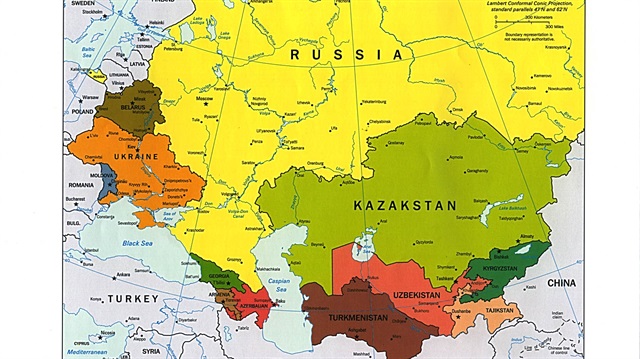
In 1991, the world as we knew it at that time radically changed. Through a series of fatal blows in the form of declarations of independence by successive Soviet republics partly as a result of Mikhail Gorbachev's Perestroika policy, the Soviet Union seized to exist and found itself relegated to the dustbin of history. From its remnants, 15 newly independent states emerged with the Russian Federation, more or less a huge rump Soviet Union, coming to terms with the realities of the new world order, and the challenges of governance and globalization.
Twenty-five year onwards, the legacy of this post-Cold War, post-Soviet order is mitigated at best. Though we are living in the era of “a World Transformed" (to use the title of the book by George H. Bush and Brent Scowcroft) or a world in transformation, the causes of the fall of the Soviet Union still reverberate today. The twin impacts of engagement and interdependence in the form of globalization with the confluence of democracy, human rights, and the attraction of the European welfare state model contributed substantially to its demise. Yet, a quarter-century later, democracy or the process of democratization are in retreat in large swaths of the post-Soviet space. Russia leads the field, possessing governance models that are more authoritarian than democratic. In fact, according to Lilia Shevtsova, the authoritarian resurgence in Russia has come with “the return of an anti-Western and revanchist Russia to the global [arena]." A cursory look at the Freedom House 'Freedom of the World 2016' index, most countries in the post-Soviet region are not considered to be free or are partly free (except for the three Baltic states). According to the World Bank's annual survey on the ease of doing business and Transparency International's annual corruption perception index, the post-Soviet states do not fare well although the ones with greater interaction with the European Union fare better on average that the rest of their peers.
The post-Soviet space also represents a major quandary for international relations, given its geographic vastness, as it is simultaneously European, Asian, and Middle Eastern. The 15 former Soviet republics are a disparate and diverse group of states, with varied income levels, different ethnic and religious compositions, and contradictory attitudes toward their Soviet pasts and contemporary Russia. Their worldview is in part shaped by the Russian Federation's perception of post-Soviet space as a 'zone of privileged interests" or its Near Abroad which the West, in particular, as well as other powers such as China are not ready to recognize Moscow's exclusivity claims over the region. The politics of energy and energy security in part shape Western attitudes, as do security considerations. The United States' and China's different Silk Road visions also imply political interests as well as major investment projects in post-Soviet Central Asia.
Nevertheless, the dominant actor over this space is the Russian Federation, with its overbearing presidential system, which is more authoritarian than democratic. It is also something more – a country that does not have a sense of being young, as its leaders spent more time stressing the origins of the state in the 9th century and its evolution since rather than living in the present. This is in part an attempt to solidify the state and stress the continuity of Russia as a great and indispensable power. Yet, Russia's increasing adventurism in Georgia, in Ukraine, and now in Syria suggests that this model may be fraying fast.
The post-Soviet republics have shown their resilience in many ways. The Baltic states – Latvia, Estonia, and Lithuania – have found ways to reinvent themselves as fully fledged members of the European Union and NATO. Others, like Kazakhstan and Azerbaijan, have preserved social and political stability by capitalizing on their natural resources and creating high growth for the last 15 years, despite the authoritarian nature of their regimes. Russia remains the enigma, as the country with an extremely liberal constitution coopted by a corrupt elite and a political system with no checks and balances, and no viable political parties. As the economic situation deteriorates in the country partly due to international sanctions, marked decreases in oil prices as well as the kleptocrats and their interests, post-Soviet Russia may yet fundamentally change yet again.
-by














